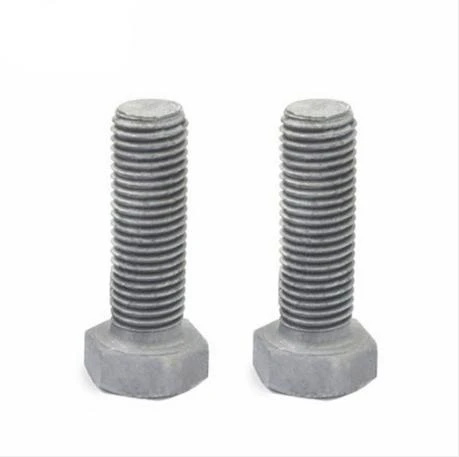

High-Performance M30 Stud Bolt for Industrial Applications and Heavy Machinery
Des . 13, 2024 05:03 Back to list
High-Performance M30 Stud Bolt for Industrial Applications and Heavy Machinery
Understanding M30 Stud Bolt A Crucial Component in Engineering
In the realm of engineering and construction, fasteners play a pivotal role in ensuring the integrity and safety of structures. Among these essential fasteners, stud bolts, particularly the M30 stud bolt, stand out due to their robustness and versatility. This article delves into the characteristics, applications, and importance of M30 stud bolts in various industries.
What is an M30 Stud Bolt?
A stud bolt is a cylindrical rod with threads on both ends, designed to be used in conjunction with nuts or other fasteners. The M in M30 indicates the metric standard, meaning that the stud bolt has a metric thread. The 30 refers to the nominal diameter, which is 30 millimeters. This size categorizes it as a large fastener, suitable for heavy-duty applications.
The 20 in M30 typically denotes the length of the bolt—specifically, 20 times the diameter, or 600 millimeters in this case. The design and dimensions of a stud bolt like this one allow it to bear substantial loads, making it ideal for high-stress environments.
Material Composition and Properties
M30 stud bolts are commonly made from high-grade materials such as carbon steel, stainless steel, or alloy steel, depending on the application requirements. The material choice affects the stud bolt’s strength, corrosion resistance, and overall performance.
- Carbon Steel Typically used for industries where corrosion is not a primary concern. Carbon steel stud bolts are inexpensive and provide excellent tensile strength. - Stainless Steel Ideal for applications exposed to moisture, chemicals, or harsh environments. Stainless steel provides higher corrosion resistance, making it suitable for marine and chemical processing industries. - Alloy Steel Often used in high-temperature and high-pressure applications due to its enhanced strength and durability.
The mechanical properties of these materials, such as tensile strength, yield strength, and ductility, make M30 stud bolts a reliable choice for demanding tasks.
Applications of M30 Stud Bolts
m30 stud bolt

The versatility of M30 stud bolts allows them to be utilized in various industries, including
- Construction In structural applications, M30 studs are used to secure beams, columns, and trusses, ensuring the stability of buildings and other structures.
- Manufacturing In heavy machinery and equipment, these stud bolts help to assemble components securely, maintaining the integrity of complex machinery under operational stresses.
- Oil and Gas Industry Due to their robustness, they are frequently used in pipelines, rigs, and refineries, where safety and reliability are paramount.
- Marine Applications Stainless steel M30 stud bolts are commonly employed in shipbuilding and dock construction, where exposure to saltwater necessitates corrosion-resistant fasteners.
Importance of Proper Installation and Maintenance
While the strength and material of M30 stud bolts are crucial factors, proper installation and maintenance are equally important. Incorrect installation can lead to failures, leading to safety hazards and costly repairs. Engineers and technicians must ensure that the bolts are tightened to the specified torque limits and that they are fitted with the appropriate nuts and washers to provide a secure fit.
Regular inspections are also essential to check for signs of wear, corrosion, or loosening over time, particularly in environments exposed to extreme conditions.
Conclusion
The M30 stud bolt is a fundamental fastener in engineering, bridging the gap between various structural and mechanical components. Its design, coupled with the right materials, ensures the reliability and safety of critical applications across industries. Understanding the significance of these fasteners, along with proper installation and maintenance protocols, is essential for engineers, builders, and technicians alike. As technology advances and new materials emerge, the evolution of stud bolts continues, promising even greater performance and versatility for future engineering challenges.
Latest news
-
Hot Dip Galvanized Bolts-About LongZe|High Strength, Corrosion Resistance
NewsJul.30,2025
-
High-Strength Hot Dip Galvanized Bolts - Hebei Longze | Corrosion Resistance, Customization
NewsJul.30,2025
-
Hot Dip Galvanized Bolts-Hebei Longze|Corrosion Resistance&High Strength
NewsJul.30,2025
-
High-Strength Hot-Dip Galvanized Bolts-Hebei Longze|Corrosion Resistance&High Strength
NewsJul.30,2025
-
Hot Dip Galvanized Bolts-Hebei Longze|Corrosion Resistance&High Strength
NewsJul.30,2025
-
Hot Dip Galvanized Bolts - Hebei Longze | Corrosion Resistance, High Strength
NewsJul.30,2025

